
Find Help
More Items From Ergsy search
-

Is surgery necessary for Crohn's disease?
Relevance: 100%
-

Is there a cure for Crohn's disease?
Relevance: 79%
-

What is Crohn’s disease and how is it treated?
Relevance: 77%
-

Is Crohn's disease contagious?
Relevance: 76%
-

Can children develop Crohn's disease?
Relevance: 75%
-

What treatments are available for Crohn's disease?
Relevance: 74%
-

What causes Crohn's disease?
Relevance: 71%
-
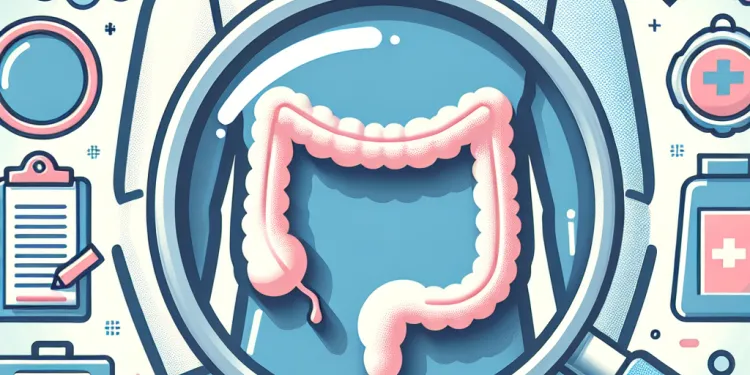
How is Crohn's disease diagnosed?
Relevance: 71%
-
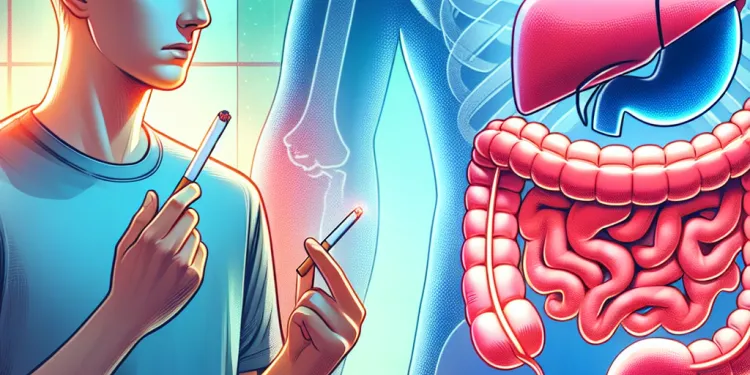
How does smoking affect Crohn's disease?
Relevance: 70%
-

Are there any complications associated with Crohn's disease?
Relevance: 70%
-

Who is at risk of developing Crohn's disease?
Relevance: 69%
-

What is the best diet for Crohn’s disease?
Relevance: 67%
-

What are the common symptoms of Crohn's disease?
Relevance: 67%
-

Can stress make Crohn's disease worse?
Relevance: 66%
-

What support is available for people with Crohn's disease in the UK?
Relevance: 65%
-

What dietary changes can help manage Crohn's disease?
Relevance: 61%
-

Infliximab infusion (Remicade) for Crohns Disease at Addenbrookes NHS hospital
Relevance: 55%
-
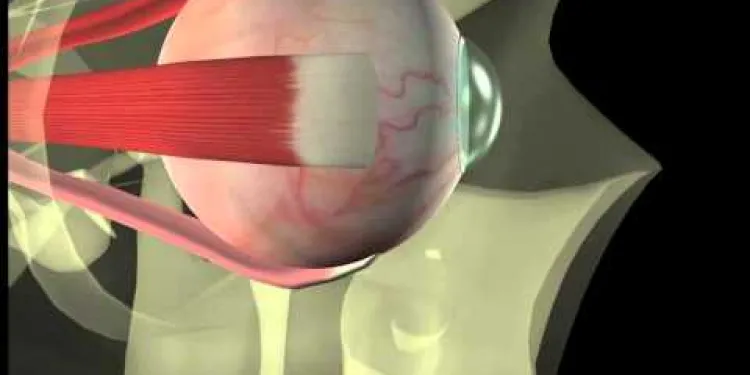
Thyroid eye disease. Squint surgery - The operation
Relevance: 47%
-

Is surgery always required to treat flesh-eating disease?
Relevance: 47%
-
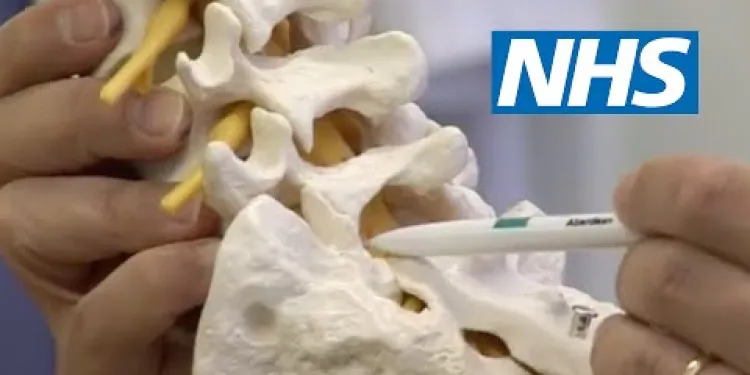
Lumbar surgery | NHS
Relevance: 36%
-
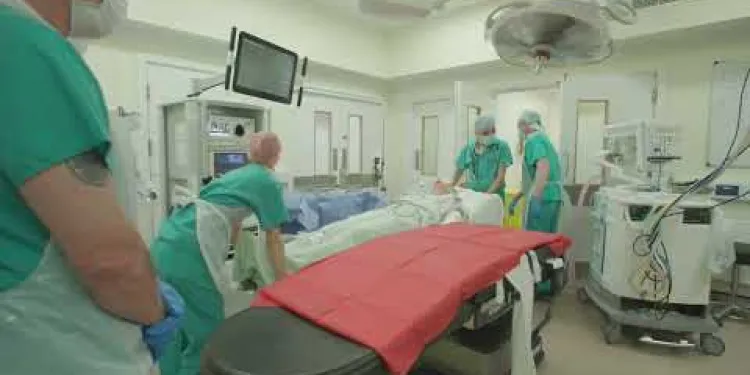
Prostate Surgery
Relevance: 34%
-

Weight Loss Surgery
Relevance: 32%
-
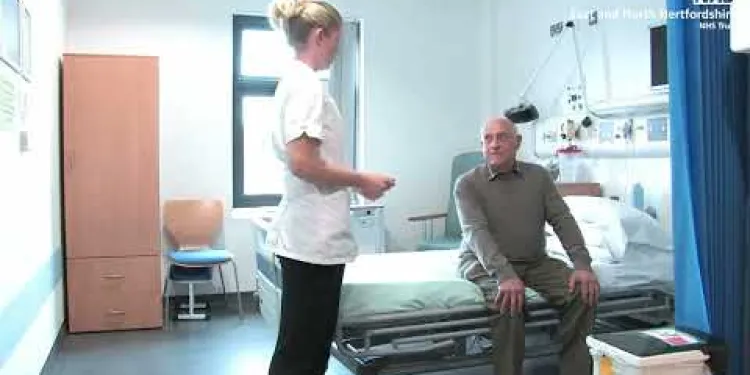
A journey to hip surgery
Relevance: 32%
-

What is a flesh eating disease?
Relevance: 31%
-

Can flesh-eating disease be treated?
Relevance: 31%
-

What is a flesh-eating disease?
Relevance: 31%
-

How do I prepare for hip replacement surgery?
Relevance: 31%
-

On the day of your cataract surgery
Relevance: 30%
-

Evidence-Based Interventions: haemorrhoid surgery
Relevance: 30%
-

Why might someone need a stoma bag?
Relevance: 30%
-

How does surgery treat prostate cancer?
Relevance: 30%
-

When is surgery recommended for BPH?
Relevance: 30%
-

What causes flesh-eating disease?
Relevance: 30%
-
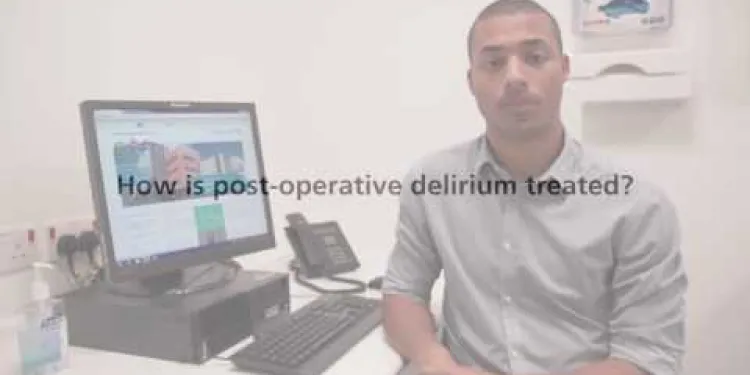
Experiencing delirium after surgery
Relevance: 30%
-

Is flesh-eating disease contagious?
Relevance: 29%
-

How much does hip replacement surgery cost in the UK?
Relevance: 29%
-
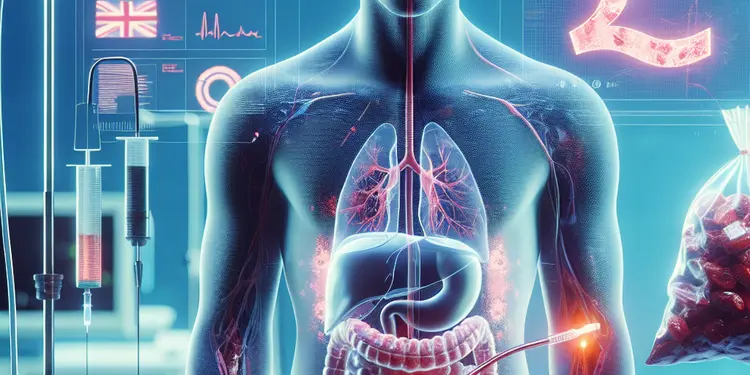
Can flesh-eating disease occur after common surgical procedures?
Relevance: 29%
-
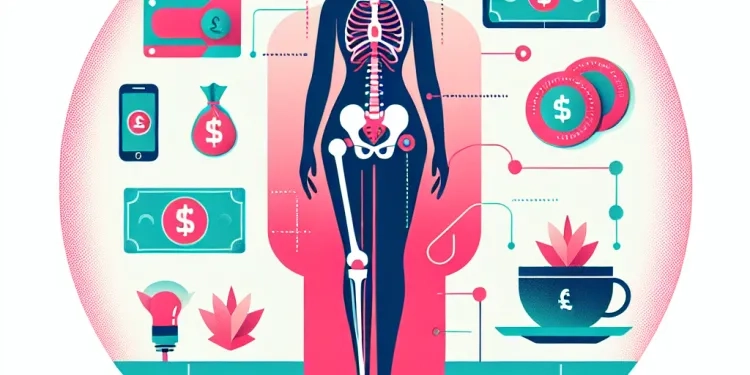
What are the risks associated with hip replacement surgery?
Relevance: 29%
-

How is flesh-eating disease diagnosed?
Relevance: 29%
-

How do I know if my surgery is considered elective or urgent?
Relevance: 29%
Is Surgery Necessary for Crohn's Disease?
Crohn's disease is a chronic inflammatory condition of the gastrointestinal tract, affecting various parts of the digestive system. In the United Kingdom, it's a prevalent condition with thousands of people diagnosed each year. Whether or not surgery is necessary for managing Crohn's disease often depends on the individual case, severity of the condition, and response to other treatments.
Understanding Crohn’s Disease
Crohn's disease can affect any part of the digestive tract, but it most commonly impacts the small intestine and the beginning of the large intestine. Symptoms include abdominal pain, severe diarrhoea, fatigue, weight loss, and malnutrition. It requires lifelong management and frequently goes through periods of remission and flare-ups.
Non-Surgical Treatments
Typically, doctors first recommend non-surgical treatments to manage symptoms and induce remission. These treatments include medication such as anti-inflammatory drugs, immune system suppressors, and biological therapies. Dietary changes and nutritional supplements can also play a significant role in managing the disease. Many patients in the UK manage their conditions effectively with these treatments, avoiding the need for surgery.
When Surgery Becomes Necessary
Unfortunately, surgery may become necessary when medications can no longer control symptoms, or complications like bowel obstruction, perforation, abscess, or severe bleeding occur. According to NHS data, about 70-80% of people with Crohn’s disease will require surgery at some point. The goal of surgery is to remove the damaged part of the digestive system, alleviate symptoms, and improve quality of life.
Types of Surgical Procedures
Common surgical procedures include resection, where the diseased portion of the intestine is removed, and strictureplasty, where narrowed sections of the intestines are widened without removing any part of the bowel. In some cases, a stoma may be created, temporarily or permanently, to allow waste to leave the body.
Conclusion
Surgery for Crohn’s disease is a significant decision and is only considered when absolutely necessary. While it cannot cure the disease, it can manage complications and improve life quality. In the UK, decisions regarding surgery are typically made in consultation with a multidisciplinary medical team, considering all treatment options and the patient's specific situation. Continuing medical advancements aim to reduce the need for surgery by improving non-surgical management of Crohn's disease.
Do People with Crohn's Disease Need Surgery?
Crohn's disease affects the stomach and intestines. Many people in the UK have it. Whether someone needs surgery depends on how bad their Crohn's disease is and how well other treatments work.
What Is Crohn’s Disease?
Crohn's disease can affect any part of the digestive system, but it usually affects the small and large intestines. Symptoms include tummy pain, bad diarrhoea, feeling very tired, losing weight, and not getting enough nutrients. People with Crohn's need to manage it all their lives. Sometimes they feel better, sometimes they feel worse.
Treatments Without Surgery
Doctors often try treatments that do not involve surgery first. These can be medicines that reduce swelling, help the immune system, or are made from living cells. Changing what you eat and taking vitamins can also help. Many people in the UK feel better with these treatments and do not need surgery.
When Is Surgery Needed?
Surgery might be needed if medicines stop working, or if there are big problems like a blocked or torn bowel, or bad bleeding. About 70-80 out of 100 people with Crohn’s will need surgery someday. The aim is to take out the damaged part, help with symptoms, and make life better.
Types of Surgeries
One type of surgery is resection, where doctors take out the sick part of the intestine. Another type is strictureplasty, where they widen the narrow parts without taking any bowel away. Sometimes, doctors make an opening in the belly, called a stoma, to help the body get rid of waste.
Final Thoughts
Deciding on surgery for Crohn’s disease is a big choice. It is only done if really needed. Surgery cannot cure Crohn's, but it can help with serious problems and make life better. In the UK, a team of doctors will talk with you to help decide if surgery is right for you. There are always new treatments being developed to help people manage Crohn's without needing surgery.
Frequently Asked Questions
Is surgery always necessary for Crohn's disease?
No, surgery is not always necessary for Crohn's disease. Many people manage their symptoms with medication and lifestyle changes. Surgery is typically considered when these measures are not effective or if complications arise.
What are the common indications for surgery in Crohn's disease?
Surgery may be recommended for severe cases where there are complications such as strictures (narrowing of the intestines), fistulas, abscesses, or when medical therapy fails to control symptoms.
What types of surgeries are available for Crohn's disease?
Common surgical procedures for Crohn's disease include resection (removing a damaged part of the intestine), strictureplasty (widening a narrowed part of the intestine), and ileostomy (creating an opening in the abdomen for waste to leave the body).
How do doctors decide if surgery is necessary for Crohn's disease?
Doctors consider several factors, including the severity and location of the disease, response to medical treatments, the presence of complications, and the patient's overall health and preferences.
Can surgery cure Crohn's disease?
Surgery does not cure Crohn's disease. While it can relieve symptoms and manage complications, Crohn's disease can still recur in other areas of the digestive tract.
What are the risks associated with surgery for Crohn's disease?
Like any major surgery, there are risks including infection, bleeding, and complications related to anesthesia. Specific surgeries may have additional risks, such as bowel obstruction or short bowel syndrome.
How long is the recovery time after surgery for Crohn's disease?
Recovery time varies based on the type of surgery and individual factors but typically ranges from several weeks to a few months. Doctors will provide specific guidance on recovery and follow-up care.
Is surgery for Crohn's disease covered by the NHS?
Yes, necessary surgery for Crohn's disease is covered by the NHS in the United Kingdom. Patients can discuss their treatment options, including surgery, with their NHS specialist.
Can I prevent the need for surgery with lifestyle changes?
Lifestyle changes like maintaining a healthy diet, quitting smoking, and managing stress can help manage symptoms and potentially reduce the need for surgery. However, they may not prevent complications in all cases.
What kind of follow-up care is needed after surgery for Crohn's disease?
Follow-up care generally involves regular check-ups with your healthcare provider, monitoring for signs of recurrence, nutritional support, and possibly medication to manage the disease.
How does surgery impact quality of life for people with Crohn's disease?
For many, surgery can significantly improve quality of life by alleviating severe symptoms and managing complications, though it requires a significant recovery period and ongoing management of the disease.
What preparation is needed before surgery for Crohn's disease?
Preparation may include dietary modifications, stopping certain medications, and undergoing pre-surgical assessments. It's important to follow the specific guidelines provided by the healthcare team.
What advances are being made in surgery for Crohn's disease?
Advancements include minimally invasive laparoscopic techniques, improved surgical tools, and enhanced post-operative care that aim to reduce recovery time and improve outcomes.
Can children with Crohn's disease require surgery?
Yes, children with severe Crohn's disease or those experiencing complications may require surgery, although it is generally considered when other treatments fail to provide relief.
How can I decide if surgery is the right choice for me?
Consulting with a gastroenterologist and a colorectal surgeon, evaluating the benefits and risks, considering personal health goals, and seeking support from patient support groups can help in making an informed decision.
Do people with Crohn's disease always need surgery?
No, not always. Some people with Crohn's disease might need surgery, but many do not. Doctors often try to help with medicine first. It is important to see the doctor and talk about what is best.
Here are some things that can help:
- Ask questions to learn more.
- Write down what the doctor says.
- Bring a friend or family member to help understand.
No, you don't always need surgery for Crohn's disease. Lots of people use medicine and change their lifestyle to feel better. Doctors usually think about surgery only if these things don’t help or if there are other problems.
Here are some things that can help:
- Take your medicine as the doctor says.
- Eat healthy food and try to avoid foods that upset your tummy.
- Try to rest enough and manage stress.
- Talk to your doctor about any changes you feel.
If you are unsure about the information, ask someone you trust to read it with you. They can help explain things better.
When do people with Crohn's disease need surgery?
Some people with Crohn's disease may need an operation. Here are some common reasons:
- Blockage in the gut: The pathway for food gets too narrow.
- Bad pain or bleeding: Medicine doesn't help enough.
- A hole in the gut: This is called a perforation.
- Infection or an abscess: A sore that won't heal.
If you have Crohn's disease, talk to your doctor. They will help decide if surgery is needed.
Look for help from tools like picture guides and videos. These can explain things in a simple way.
Doctors might suggest surgery if you have serious problems like:
- A tight spot in your intestines
- Unusual tunnels in your body called fistulas
- Pockets of infection called abscesses
- When medicine does not help you feel better
What surgeries can help with Crohn's disease?
People with Crohn's disease sometimes need surgery to help them feel better. Here are types of surgeries that can help:
- Removing a part of the bowel: Doctors might take out sick parts of the bowel so the healthy parts can work better.
- Fixing a part of the bowel: Sometimes doctors make the bowel wider if it's too narrow.
- Making a new way for poop to leave the body: Doctors might make a new path if the usual way is sick.
If you or someone you know has Crohn's and might need surgery, it's important to talk to a doctor. They can help explain what option is best. Using pictures or asking someone to go with you can help understand better.
Doctors can do surgery to help people with Crohn's disease. Here are the main ones:
- Resection: This is when doctors take out a sick part of the gut.
- Strictureplasty: This is when doctors make a narrow part of the gut wider.
- Ileostomy: This is when doctors make a new opening in the belly. This helps waste leave the body.
If you're finding this hard to read, you can try using tools that read the text out loud for you or ask someone to read it with you.
How do doctors know if someone with Crohn's disease needs surgery?
Doctors decide if someone needs surgery by looking at how serious the Crohn's disease is. They ask questions like:
- Is the medicine helping?
- Is the person's tummy (belly) hurting a lot?
- Is the person having trouble eating or going to the toilet?
If the person is really sick and medicine isn’t helping, doctors might say they need surgery to feel better.
Tools to help: It can help to have a family member or friend go with you to the doctor. They can help you remember what the doctor says.
Doctors look at different things to help you. They check how bad the disease is, where it is in your body, and if medicine is helping you. They also look for other problems and think about how healthy you are and what you want.
Can surgery fix Crohn's disease?
Crohn's disease is a sickness in your tummy. Sometimes, doctors use surgery to help people feel better. But surgery does not make Crohn's disease go away forever.
The surgery can help with pains and fix some problems from Crohn's disease.
If you have Crohn's disease and are curious about surgery, talk to a doctor. They can explain it in a way that helps you understand.
If you find reading hard, you can try:
- Using pictures to help learn about Crohn's disease.
- Listening to someone read out loud.
- Asking someone to explain words you don't know.
Surgery cannot completely fix Crohn's disease. It can help with feeling better and fixing some problems, but Crohn's disease might come back in other parts of the gut.
What can happen if you have surgery for Crohn's disease?
When you have a big surgery, things can go wrong. You might get an infection, bleed a lot, or have problems with the medicine that makes you sleep during the operation.
Certain surgeries might have other problems. For example, you could get your intestines blocked or have a shorter intestine.
How long does it take to get better after surgery for Crohn's disease?
Getting better after Crohn's surgery can take time. Everyone is different, so it can take a few weeks to a few months. Resting and following the doctor’s advice helps a lot. Using a calendar to track progress and having a family member or friend for support can also be very helpful.
How long it takes to get better after surgery can be different for each person. It depends on what kind of surgery you have. It can take a few weeks or a few months to feel better.
Your doctor will tell you how to take care of yourself and what to do to get better.
If you need help reading, you can use a tool that reads the text out loud for you. You can also ask someone to explain it.
Does the NHS pay for Crohn's disease surgery?
Yes, the NHS in the UK pays for important surgery to help people with Crohn's disease. Patients can talk to their NHS doctor about their treatment choices, like surgery.
Can I avoid surgery by changing my lifestyle?
Changing some habits might help you avoid surgery. Here are a few things you can try:
- Eat healthy foods: Eating lots of fruits and vegetables can keep you healthy.
- Exercise regularly: Moving your body, like walking or playing, can make you stronger.
- Get plenty of rest: Sleeping well helps your body stay in good shape.
- Talk to your doctor: A doctor can tell you more about what might help.
These steps might help, but it's important to listen to your doctor. They know what's best for you.
Changing how you live can help you feel better. Here are a few things you can do:
- Eat healthy foods
- Stop smoking
- Find ways to feel less stressed
These changes might help you need less surgery. But they might not stop all problems. You can try using calendars or reminders to keep track of these changes. It's okay to ask for help from family or friends too.
What care do you need after Crohn's surgery?
After surgery for Crohn's disease, you need to see your doctor. They will check if you are healing well. You might need to take medicines. Eating healthy food and resting are important. Follow your doctor's advice.
If you feel pain or see redness, tell your doctor. It's important to keep all your follow-up appointments.
Using a calendar to remember doctor visits and medicine times can help. A family member or friend can help remind you too.
After your treatment, you will see your doctor for regular check-ups. They will check to make sure the illness has not come back. You might talk about healthy eating and may get medicine to help manage your illness.
How does surgery affect life for people with Crohn's disease?
Surgery can change how people with Crohn's disease feel every day. It might help them have less pain or fewer problems with their tummy. After surgery, some people might feel better and have more energy to do things they like.
Talking to a doctor can help people understand how surgery might help them. They can also use pictures or videos to learn more about surgery and what happens after it.
Surgery can help many people feel better by making bad symptoms go away. It also helps with other problems. But after surgery, people need time to get better and still need to take care of the disease.
Getting Ready for Crohn's Disease Surgery
How do you get ready for Crohn's disease surgery? Here are some simple steps:
- See your doctor or nurse. They will tell you what to do before your surgery.
- Make sure you understand the plan. Ask questions if you need help.
- Tell the doctor about any medicines you take. You might need to stop taking some.
- Eat only what the doctor says you can eat. They might give you a special diet.
- Plan for time to rest after the surgery. Ask someone to help you at home.
If reading is hard, ask someone to read it with you. You can also use audiobooks or read-aloud tools to help.
Getting ready for surgery might mean changing what you eat, not taking some medicines, and having some health checks. It's very important to do what the doctors and nurses tell you to do.
What new things are helping with Crohn's disease surgery?
Doctors are finding new ways to do surgery for people with Crohn's disease. These new ways help people feel better and recover faster.
If you want help understanding, try using pictures or videos. You can also ask someone to explain it to you in a simple way.
Doctors have new ways to do surgeries. They use small tools and cameras, which means they don't have to make big cuts. This helps people get better faster after surgery. There are also better tools and ways to take care of patients after the surgery to help them feel better quickly.
Do kids with Crohn's disease need surgery?
Some kids with Crohn's disease might need an operation (called surgery) to help them feel better.
If you want to understand this more, you can:
- Ask a doctor or nurse to explain it to you.
- Use pictures and videos to see how it works.
- Talk to someone who has had the same experience.
Yes, kids with bad Crohn's disease might need surgery. This can happen if other treatments don't help. Surgery is used when nothing else works and the child has problems.
How do I know if surgery is right for me?
Here is how you can decide:
- Talk to your doctor. They can explain what the surgery will do.
- Ask questions. Make sure you understand the risks and benefits.
- Talk to your family or friends. They can give you support.
- Write down what you want to know. This can help you remember to ask.
- Use simple words when talking. This can make it easier to understand.
- Look at pictures or videos. They can show you what will happen.
Talk to a tummy doctor and a bottom doctor. Think about the good and bad things. Decide what you want for your health. Get help from groups of other patients. This will help you make a smart choice.
Useful Links
This website offers general information and is not a substitute for professional advice.
Always seek guidance from qualified professionals.
If you have any medical concerns or need urgent help, contact a healthcare professional or emergency services immediately.
Some of this content was generated with AI assistance. We’ve done our best to keep it accurate, helpful, and human-friendly.
- Ergsy carfully checks the information in the videos we provide here.
- Videos shown by Youtube after a video has completed, have NOT been reviewed by ERGSY.
- To view, click the arrow in centre of video.
- Most of the videos you find here will have subtitles and/or closed captions available.
- You may need to turn these on, and choose your preferred language.
- Go to the video you'd like to watch.
- If closed captions (CC) are available, settings will be visible on the bottom right of the video player.
- To turn on Captions, click settings .
- To turn off Captions, click settings again.
More Items From Ergsy search
-

Is surgery necessary for Crohn's disease?
Relevance: 100%
-

Is there a cure for Crohn's disease?
Relevance: 79%
-

What is Crohn’s disease and how is it treated?
Relevance: 77%
-

Is Crohn's disease contagious?
Relevance: 76%
-

Can children develop Crohn's disease?
Relevance: 75%
-

What treatments are available for Crohn's disease?
Relevance: 74%
-

What causes Crohn's disease?
Relevance: 71%
-

How is Crohn's disease diagnosed?
Relevance: 71%
-

How does smoking affect Crohn's disease?
Relevance: 70%
-

Are there any complications associated with Crohn's disease?
Relevance: 70%
-

Who is at risk of developing Crohn's disease?
Relevance: 69%
-

What is the best diet for Crohn’s disease?
Relevance: 67%
-

What are the common symptoms of Crohn's disease?
Relevance: 67%
-

Can stress make Crohn's disease worse?
Relevance: 66%
-

What support is available for people with Crohn's disease in the UK?
Relevance: 65%
-

What dietary changes can help manage Crohn's disease?
Relevance: 61%
-

Infliximab infusion (Remicade) for Crohns Disease at Addenbrookes NHS hospital
Relevance: 55%
-

Thyroid eye disease. Squint surgery - The operation
Relevance: 47%
-

Is surgery always required to treat flesh-eating disease?
Relevance: 47%
-

Lumbar surgery | NHS
Relevance: 36%
-

Prostate Surgery
Relevance: 34%
-

Weight Loss Surgery
Relevance: 32%
-

A journey to hip surgery
Relevance: 32%
-

What is a flesh eating disease?
Relevance: 31%
-

Can flesh-eating disease be treated?
Relevance: 31%
-

What is a flesh-eating disease?
Relevance: 31%
-

How do I prepare for hip replacement surgery?
Relevance: 31%
-

On the day of your cataract surgery
Relevance: 30%
-

Evidence-Based Interventions: haemorrhoid surgery
Relevance: 30%
-

Why might someone need a stoma bag?
Relevance: 30%
-

How does surgery treat prostate cancer?
Relevance: 30%
-

When is surgery recommended for BPH?
Relevance: 30%
-

What causes flesh-eating disease?
Relevance: 30%
-

Experiencing delirium after surgery
Relevance: 30%
-

Is flesh-eating disease contagious?
Relevance: 29%
-

How much does hip replacement surgery cost in the UK?
Relevance: 29%
-

Can flesh-eating disease occur after common surgical procedures?
Relevance: 29%
-

What are the risks associated with hip replacement surgery?
Relevance: 29%
-

How is flesh-eating disease diagnosed?
Relevance: 29%
-

How do I know if my surgery is considered elective or urgent?
Relevance: 29%


